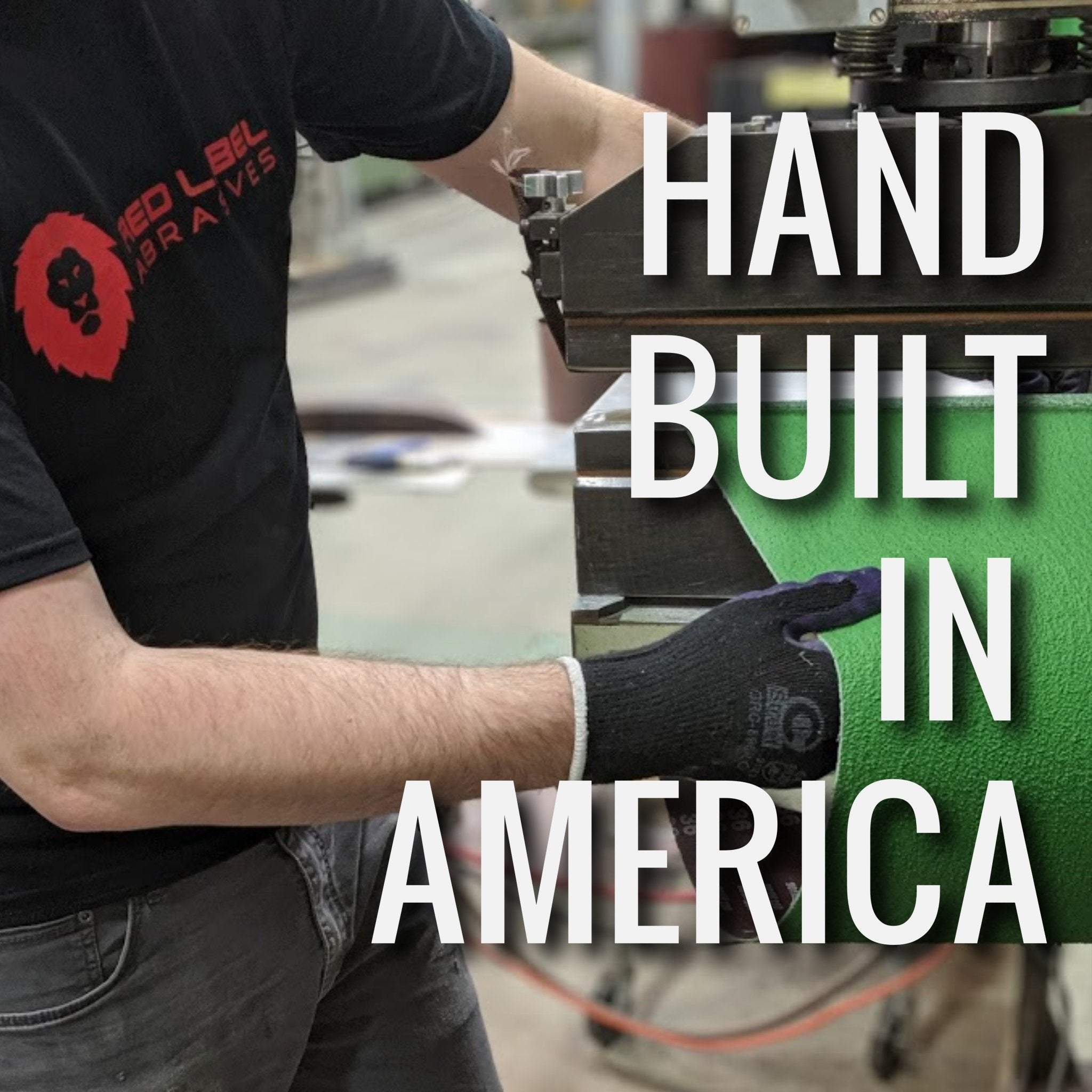Tu carrito está vacío
Envío gratis a partir de $150 (No incluye productos de gran tamaño)
Envío gratis a partir de $150 (No incluye productos de gran tamaño)
Bandas de lijado
Discos de lijado

Coal Forge Vs. Propane Forge: Which Should You Use?
por David Kranker 10 lectura mínima

Quick Summary
When choosing between a coal forge and a propane forge, it’s important to consider your experience level, the type of work you’re doing, and your workspace. Coal forges offer traditional appeal, high temperatures, and versatility, making them ideal for experienced blacksmiths and larger projects. However, they require more skill to manage and produce more environmental pollutants. Propane forges, on the other hand, are easier to use, provide consistent heat, and are more portable, making them a great choice for beginners or those working in smaller spaces. The trade-off is less temperature control and potentially higher fuel costs. Ultimately, your decision should be based on what best suits your needs.
As a blacksmith, the type of forge you use can have a big impact on your work. The two most common options are coal forges and propane forges, each of which comes with its own set of advantages and challenges. The question is: which one is right for you?
The main difference between coal and propane forges is their fuel source, but this is only one consideration. In this blog, the team at Red Label Abrasives will explain the key differences between both forge types, so that you can make the best choice for your needs.
Understanding the Basics: What Is a Forge?
A forge is essentially a hearth used to heat metals to a high temperature so they can be shaped, bent, or welded. The heat is usually generated by burning fuel or gas, and the temperature needs to be hot enough to make the metal pliable.
Forges have been around for thousands of years, evolving from simple pit forges to the more advanced setups we see today. Whether you’re working with iron, steel, or other metals, a forge is the heart of your blacksmithing operation. The right forge will help you achieve the results you want, whether you’re crafting tools, knives, or art pieces.
When you’re making a decision, you want to consider more than just the fuel type: it’s about how each forge operates, the kind of heat it produces, and how that heat is applied to your workpiece. This understanding will help you choose the forge that best suits your style, your workspace, and the projects you plan to undertake.
Coal Forges: The Traditional Choice
The coal forge has been the traditional choice for blacksmiths for centuries. When you think of a classic blacksmith shop, you probably envision a coal forge with a roaring fire. But what exactly is it, and why do some blacksmiths still prefer it today?
How Coal Forges Work
As its name suggests, a coal forge uses coal as the fuel source by burning it in a firepot, which is usually made of cast iron or another heat-resistant material. An electric blower or bellows are used to blow air into the firepot to raise the temperature. The hotter the fire, the easier it is to heat the metal to the desired temperature.
One of the main advantages of a coal forge is the high temperature it can reach. Coal burns very hot, and with proper control, you can achieve temperatures that are ideal for working with a wide range of metals. This makes a coal forge very versatile; you can use it on anything from delicate jewelry to heavy tools.
The ability to create different heat zones is another important aspect of how coal forges work. By controlling the placement of the coal and the airflow, you can create areas of higher and lower temperatures. This allows you to heat different parts of your workpiece to different levels, which is especially useful for projects that require varying degrees of heat treatment.
Advantages of Using a Coal Forge
- Temperature Control: By adjusting the amount of air that flows into the firepot, you can increase or decrease the heat. This makes it easier to reach and maintain the exact temperature you need for your project. For more experienced blacksmiths, this level of control can be a major benefit, allowing for precise heating and cooling of different parts of the workpiece.
- Cost-Effective: If you have access to affordable coal, running a coal forge can be less expensive than using propane. This is especially true if you’re doing a lot of work and need a constant, high heat. However, it’s important to consider the quality of the coal you’re using, as higher-quality coal can burn cleaner and hotter, making your forge more efficient.
- Traditional Appeal: For many blacksmiths, part of the appeal of using a coal forge is the connection to tradition. There’s something satisfying about working with the same type of forge that blacksmiths have been using for centuries. The sight, smell, and sound of a coal forge can add to the overall experience, making your work feel more authentic.
- Versatility: Coal forges are very versatile. You can create different heat zones by moving the coals around, which allows you to heat different parts of your workpiece to different temperatures. This is particularly useful for projects that require precise temperature control. The ability to use various types of coal and even mix in other fuels, like charcoal, can also give you more options in how you operate your forge.
Challenges of Using a Coal Forge
- Fuel Availability: Depending on where you live, coal might not be as easy to come by as propane. You’ll need to find a reliable supplier, and depending on your location, this might require some research or travel. Storing coal also requires space and proper ventilation to avoid any safety hazards.
- Environmental Impact: Coal is a fossil fuel, and burning it releases carbon dioxide and other pollutants into the atmosphere. While some blacksmiths choose to offset this by using cleaner-burning coal or supplementing with other fuels, the environmental footprint of a coal forge is generally larger than that of a propane forge.
- Learning Curve: Using a coal forge requires a certain level of skill and experience. You need to know how to manage the fire, control the air flow, and work with the varying temperatures within the forge. However, for those willing to invest the time in learning these skills, the rewards can be significant, as mastering a coal forge can greatly enhance your blacksmithing capabilities.
- Maintenance: Coal forges require regular cleaning and maintenance to remove ash and clinker (a byproduct of burning coal). If not properly maintained, these can build up and affect the performance of your forge. You’ll need to schedule regular cleanings and ensure that your forge is properly ventilated to maintain its efficiency.
Propane Forges: The Modern Alternative
Propane forges have become increasingly popular in recent years, particularly among hobbyists and those who are new to blacksmithing. A propane forge offers a more modern approach to heating metal, and it comes with its own set of benefits and drawbacks.
How Propane Forges Work
A propane forge uses propane gas, which is stored in a tank and fed into the forge through a hose. Inside, the propane is mixed with air and ignited, creating a consistent and controllable flame. The metal is then placed inside the forge, where it’s heated to the desired temperature.
One of the key benefits of a propane forge is the ease of use. With a simple setup, you can get your forge up and running quickly, making it ideal for those who want to get started without a lot of fuss. The controlled environment of a propane forge also means that once you set the temperature, it remains stable, which can be particularly helpful for beginners who are still learning how to manage heat.
Advantages of Using a Propane Forge
- Ease of Use: Propane forges are generally easier to use than coal forges. You don’t need to worry about stoking the fire or managing the airflow; you simply turn on the gas, ignite the flame, and start heating your metal. This makes propane forges a great choice for beginners.
- Consistent Heat: Once you set the temperature, the forge will maintain it, allowing you to focus on your work without constantly adjusting the fire. This is particularly useful for projects that require a steady temperature over a long period. When you're working on a project that involves multiple heat cycles, like hardening and tempering steel, a propane forge can make the process easier.
- Clean Burning: Propane burns much cleaner than coal because it produces fewer pollutants and less smoke. This makes it a better option if you’re working in an enclosed space or if you’re concerned about the environmental impact of your forge. The cleaner burn also means less residue and soot to deal with, making maintenance easier.
- Portability: Propane forges are usually smaller, lighter, and don’t require a separate air source like a fire bellow. This makes them ideal for taking to events, demonstrations, or for use in small workshops where space is limited.
- Availability of Fuel: Propane is widely available and can be easily purchased at most hardware stores or gas stations. This makes it a convenient option, especially if you don’t have easy access to coal.
Challenges of Using a Propane Forge
- Cost of Fuel: While propane is easy to find, it can be more expensive than coal, especially if you’re using your forge frequently. However, this cost can be offset by the efficiency and ease of use that a propane forge offers, particularly if you value the convenience and portability it provides.
- Limited Temperature Control: While propane forges offer consistent heat, they don’t provide the same level of temperature control as coal forges. You can adjust the flame to some extent, but you won’t be able to create different heat zones or achieve the very high temperatures that a coal forge can. This limitation might be a drawback if you’re working on projects that require more precise temperature manipulation, such as certain types of metalwork that involve complex heat treatment processes.
- Size Limitations: Propane forges are often smaller than coal forges, which can limit the size of the workpieces you can heat. If you’re planning on working with large pieces of metal, you might find a propane forge too restrictive.
- Dependence on a Fuel Source: Unlike coal, which you can stockpile, propane forges rely on tanks that need to be refilled regularly. If you run out of propane in the middle of a project, you’ll have to stop working until you can get more. This dependence on a fuel source means you’ll need to plan ahead and ensure you always have enough propane on hand, especially if you’re working on time-sensitive projects.
Choosing the Right Forge for Your Needs
Now that you have a better understanding of coal and propane forges, you might be wondering which one is right for you. The answer depends on several factors, including your experience level, the type of work you’re doing, and your personal preferences.
Consider Your Experience Level
If you’re new to blacksmithing, a propane forge might be the better choice. The ease of use, consistent heat, and low maintenance make it a great option for beginners. You won’t have to worry about managing a fire or dealing with the learning curve that comes with a coal forge. The simplicity of a propane forge also allows you to focus more on developing your blacksmithing skills without being overwhelmed by the technical aspects of fire management.
On the other hand, if you’re more experienced and enjoy the process of managing a fire and controlling different heat zones, a coal forge could be more satisfying. The traditional appeal and versatility of a coal forge can offer a deeper connection to the craft, especially if you’re interested in historical blacksmithing techniques.
Think About the Type of Work You’re Doing
The type of work you’re planning to do can also influence your decision. If you’re working on smaller projects or need a forge that’s portable and easy to set up a propane forge might be the better option. It’s particularly useful for knife-making, jewelry, and other small-scale projects where consistent heat is important. The portability of a propane forge also makes it ideal for those who like to work in different locations or participate in events and demonstrations.
If you’re planning on working with larger pieces of metal or need the ability to create different heat zones, a coal forge might be more suitable. The high temperatures and versatility of a coal forge make it ideal for larger projects, such as tool-making, sculpture, and traditional blacksmithing. If your work involves complex heat treatment processes or requires the ability to manipulate different parts of a workpiece at varying temperatures, a coal forge offers the flexibility you need.
Consider Your Work Environment
Your work environment is another important factor to consider. If you’re working in an enclosed space, a propane forge might be the safer and more practical choice. Propane forges produce less smoke and fewer pollutants, making them better suited for indoor use. The cleaner burn of a propane forge also means you won’t have to worry as much about ventilation, making it easier to maintain a safe and comfortable workspace.
If you have a dedicated outdoor space and don’t mind the smell and smoke, a coal forge could work well for you. The open-air environment allows for better ventilation, and the traditional setup can add to the overall experience. Working with a coal forge in an outdoor setting can also create a more authentic blacksmithing experience, connecting you with the history and tradition of the craft.
Weigh the Costs
Finally, consider the costs involved. If you have access to affordable coal and don’t mind the extra work involved in maintaining a coal forge, it could be a cost-effective option in the long run. However, if convenience and ease of access to fuel are more important to you, a propane forge might be worth the extra expense. Additionally, the upfront cost of a propane forge is typically lower, making it a more accessible option for those just starting out or working with a limited budget.
Need Premium Abrasives for Your Metalworking Projects?
In the end, the decision between a coal forge and a propane forge is a personal one. Both options offer unique benefits that can help you in your blacksmithing work. Whether you’re drawn to the tradition and control of a coal forge or the convenience and consistency of a propane forge, the right choice is the one that aligns with your goals and the work you want to create.
Regardless of which option you go with, you’ll want quality abrasives to shape and finish your projects. At Red Label Abrasives, we offer a wide range of sanding sheets, sanding belts, and sanding discs that can deliver excellent results in all types of metalworking pieces. If you have questions or would like to place an order, call 844-824-1956 or fill out our contact form today.Ver artículo completo

Clip Point vs Drop Point Blades: Which Is Better?
por David Kranker 9 lectura mínima
Ver artículo completo ABOUT THE AUTHOR
David Kranker is a writer and creative maker who has been covering the abrasive and knife-making industries on the Red Label Abrasives Blog since 2020. David spends his time continually researching sanding and bladesmithing to provide readers with the latest and greatest information. In his free time, David utilizes abrasives for many different home and auto projects at his home in Delton, MI.
Belt Packs Made For Knife Makers
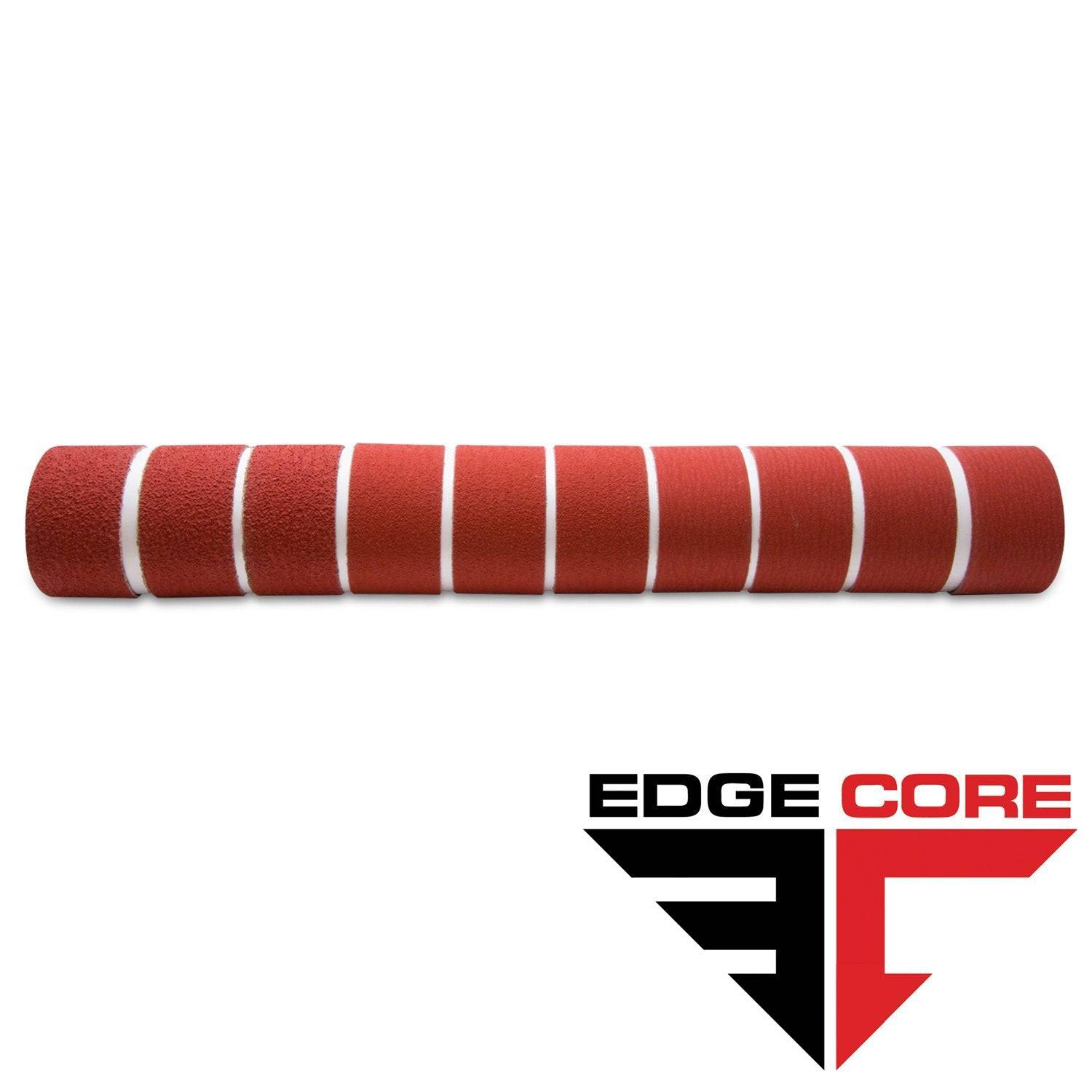
2 X 72 Inch Knife Makers Sanding Belts Assortment
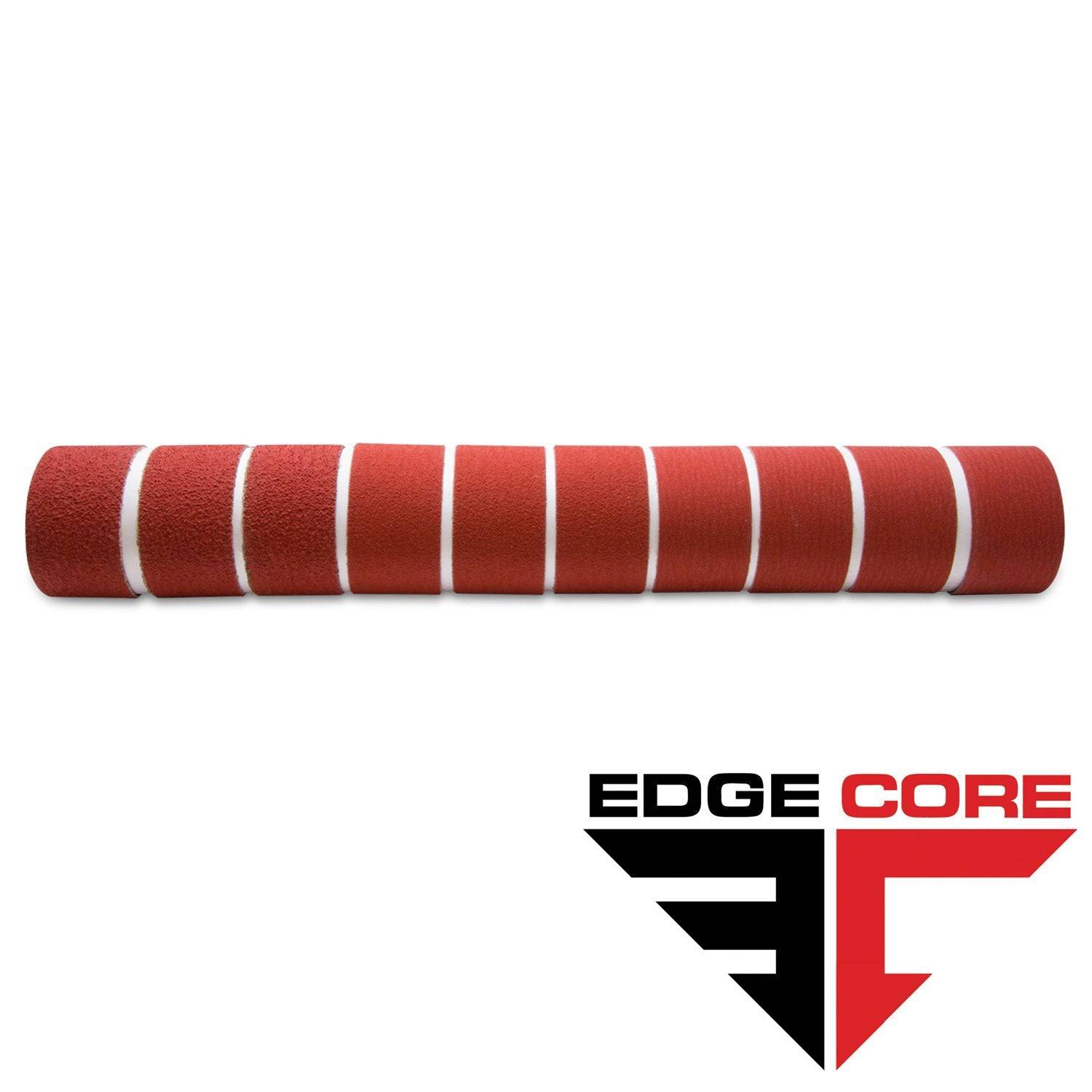
2 X 60 Inch Knife Makers Sanding Belts Assortment
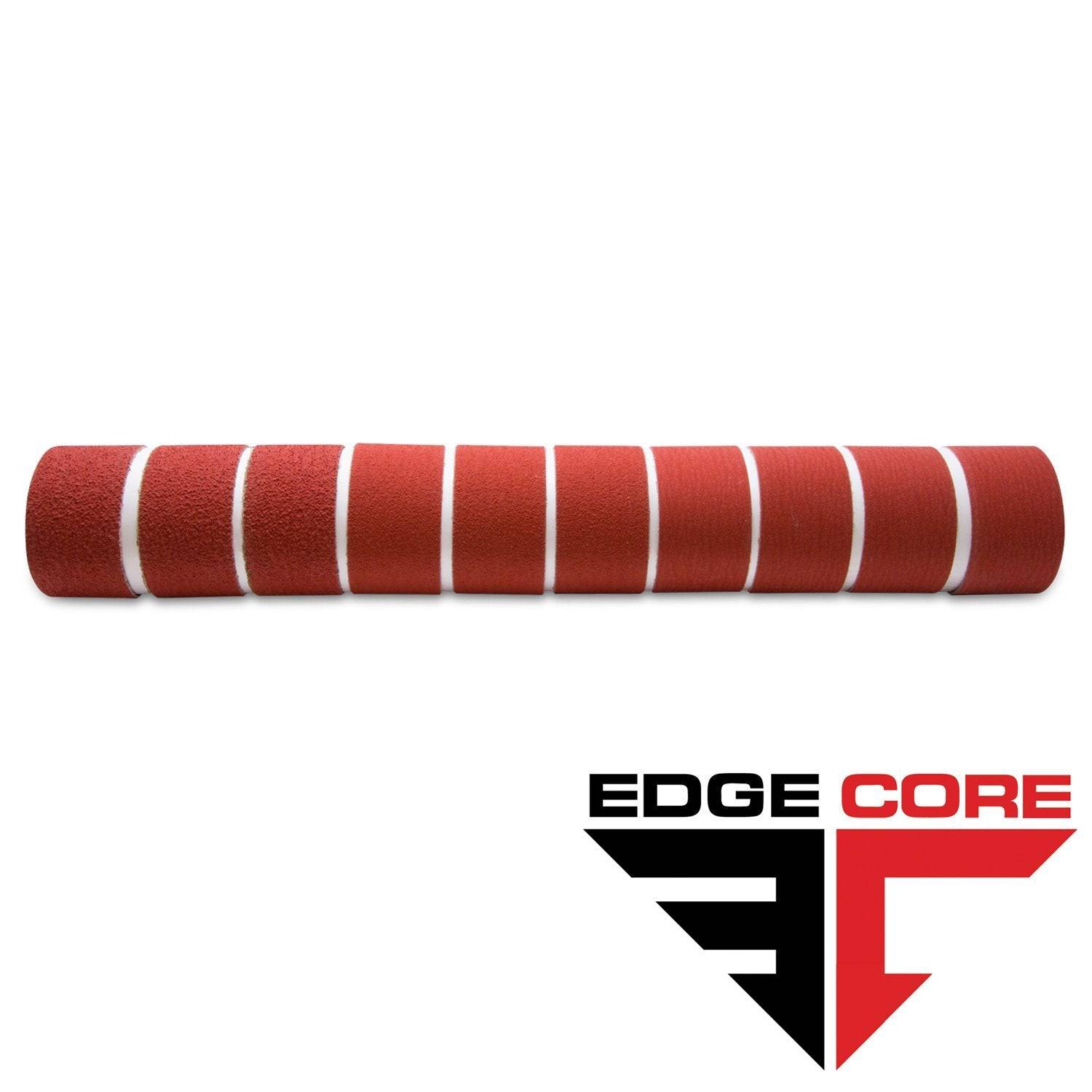
2 X 48 Inch Knife Makers Sanding Belts Assortment
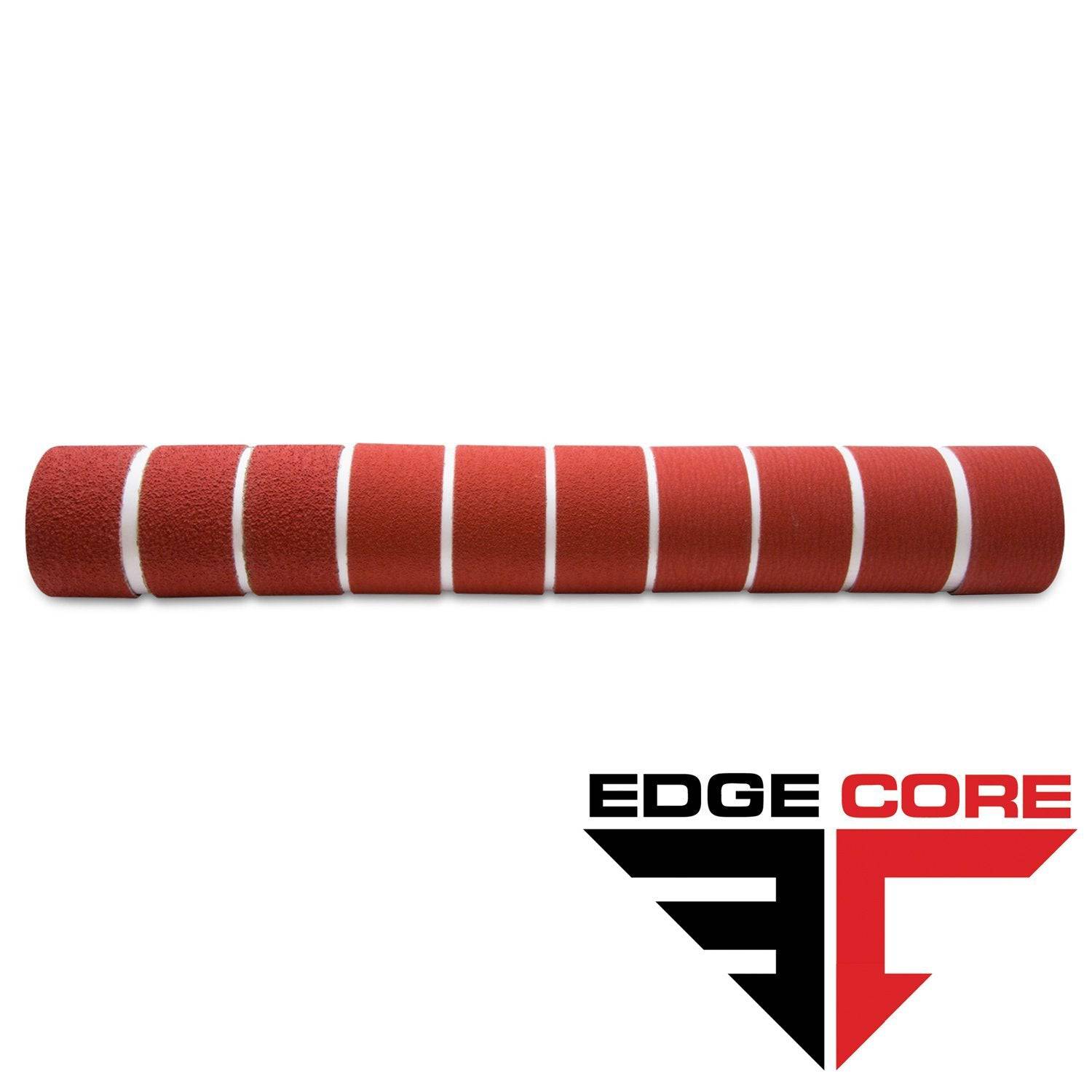
2 X 36 Inch Knife Makers Sanding Belt Assortment
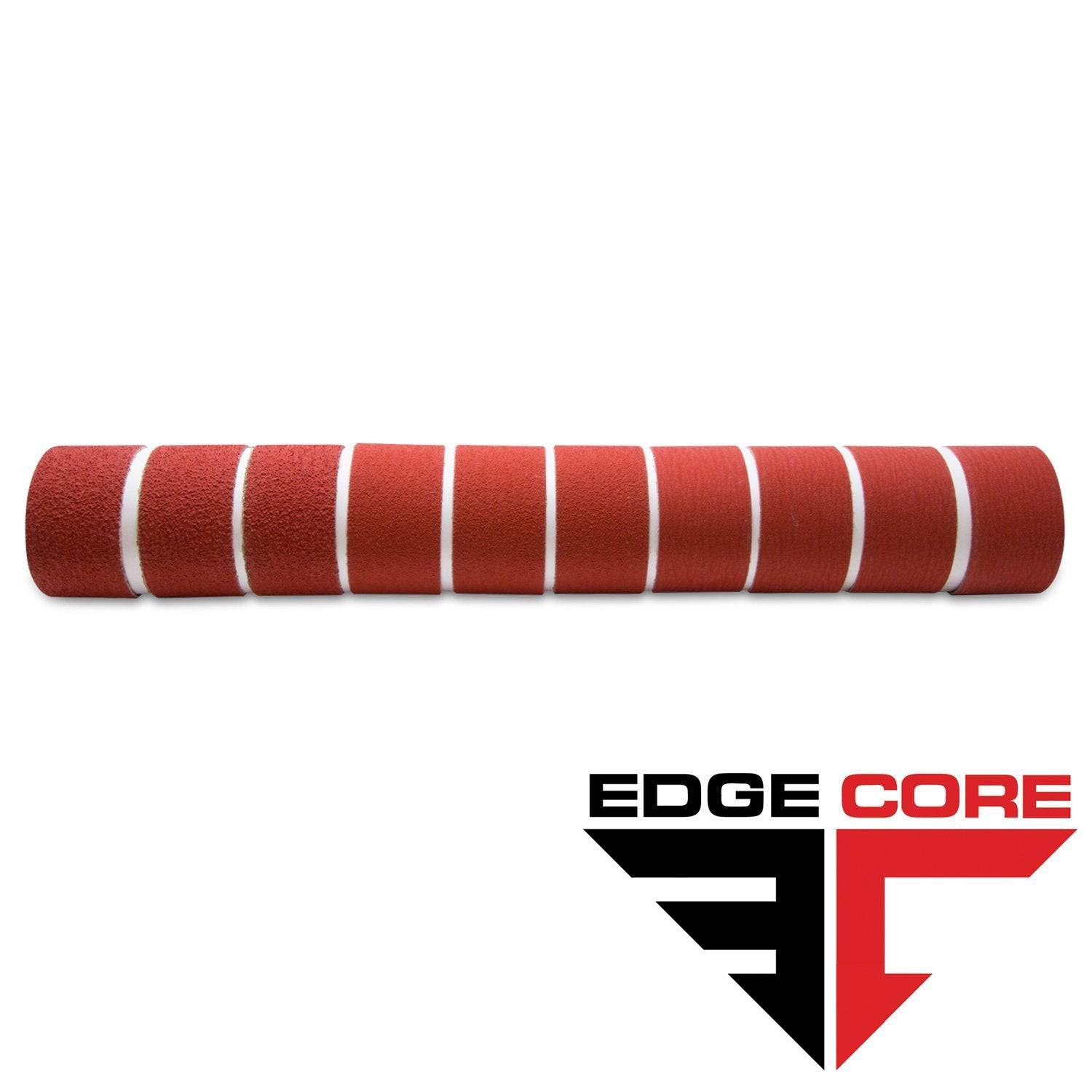
2 X 42 Inch Knife Makers Sanding Belts Assortment
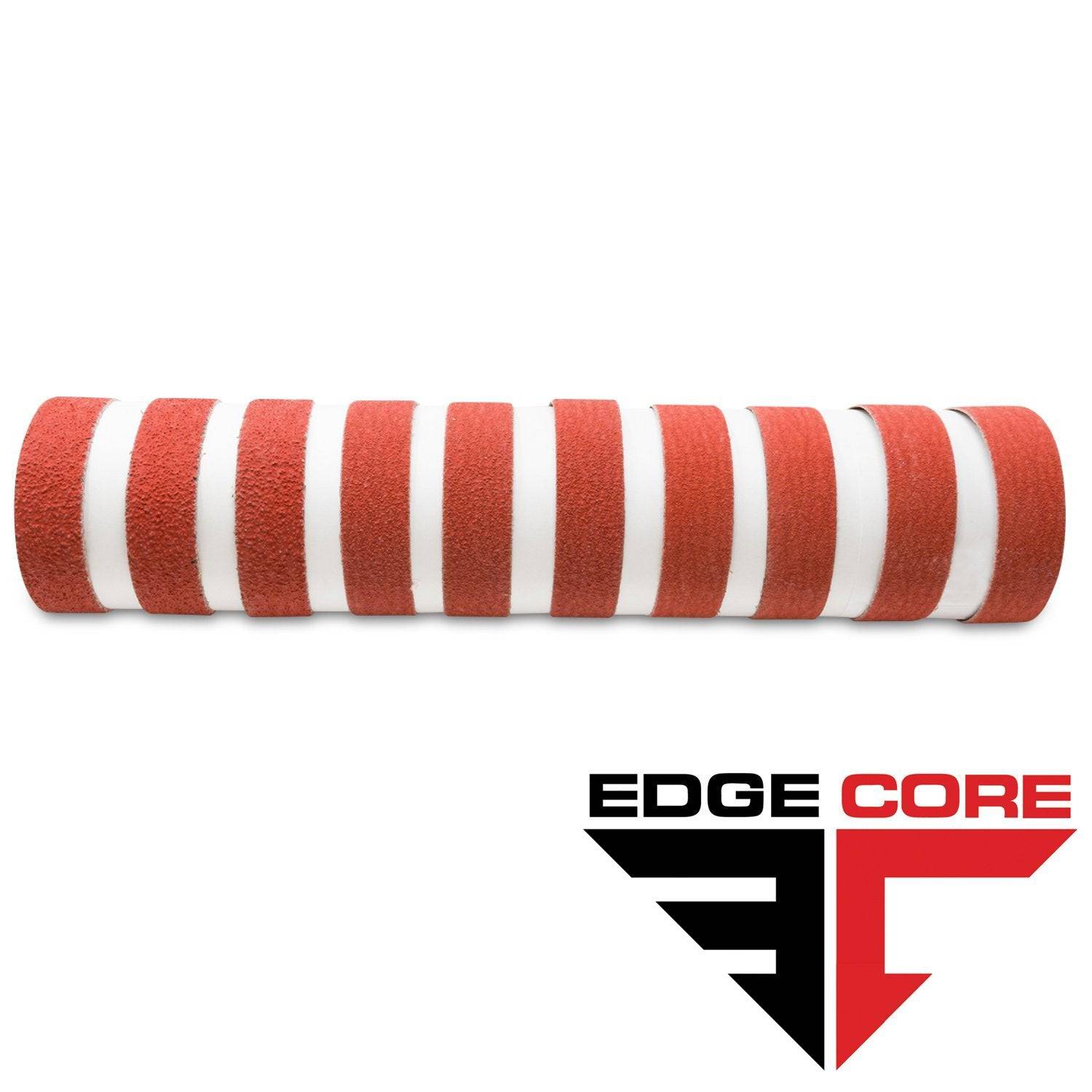
1 X 30 Inch Knife Makers Sanding Belts Assortment
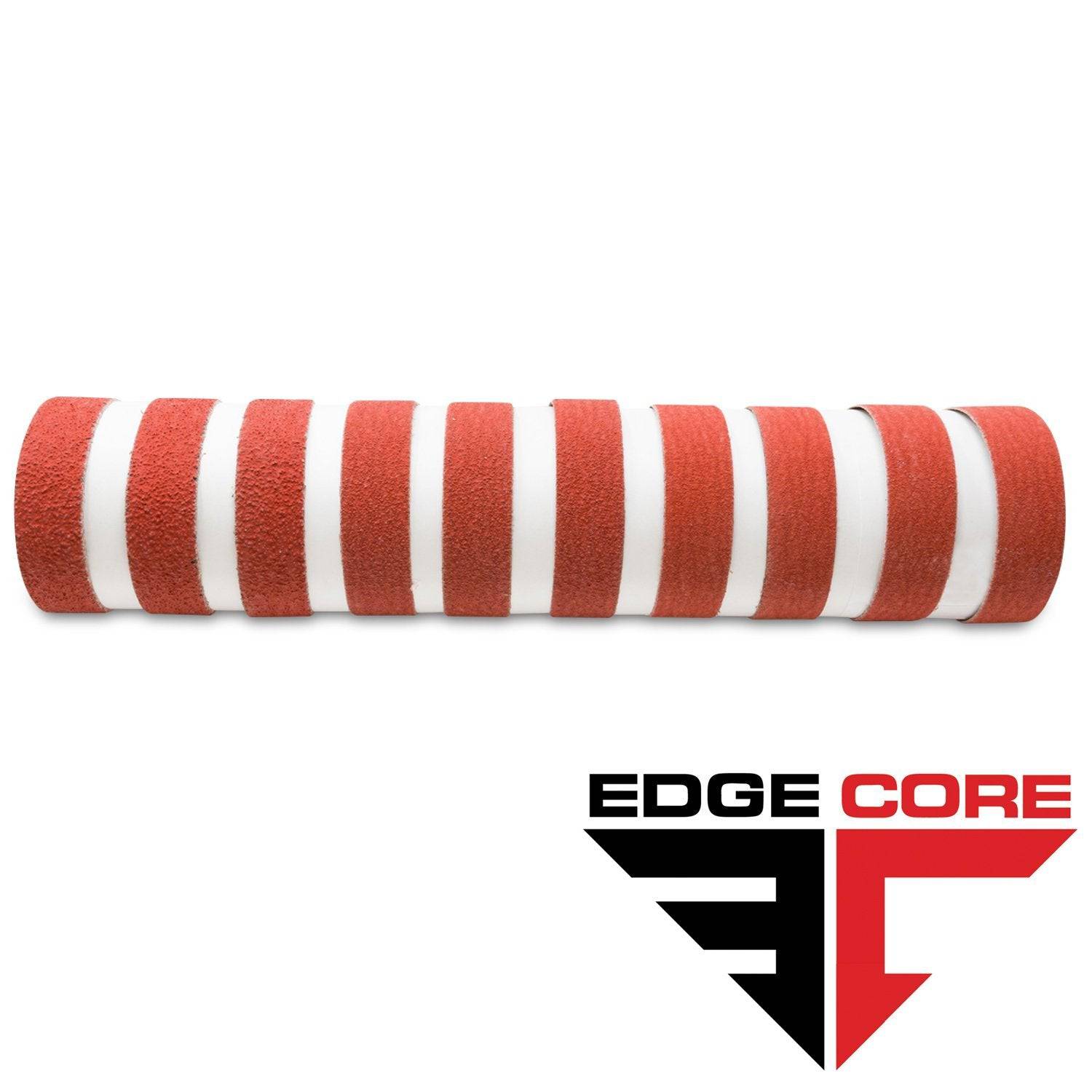
1 x 42 Inch Knife Makers Sanding Belt Assortment
Shop By Product Category


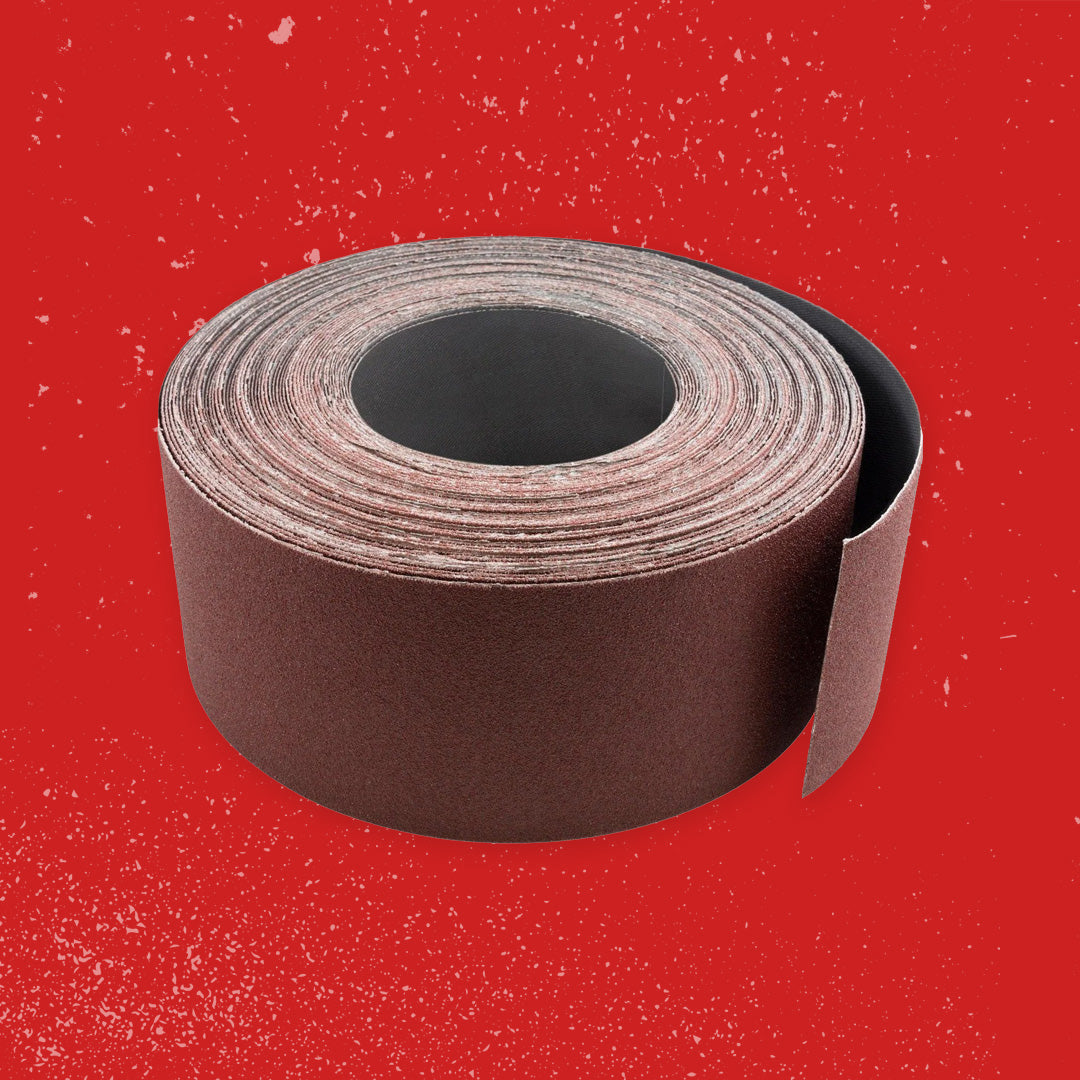


Why Choose Red Label?

